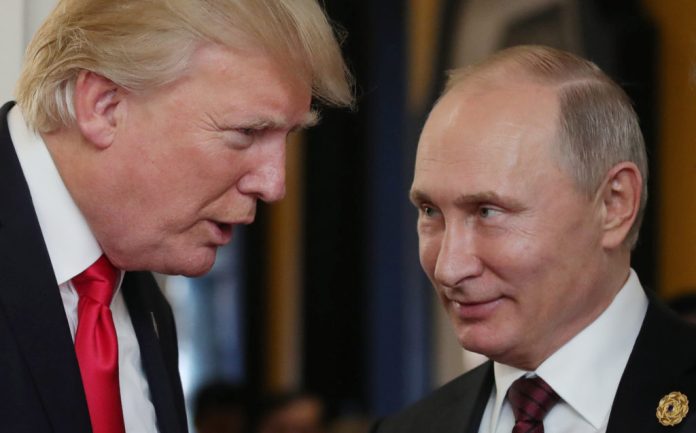
Russian President Vladimir Putin said Thursday, August 7, he hopes to meet with U.S. President Donald Trump next week—possibly in the United Arab Emirates—as diplomatic momentum builds toward a potential resolution of the war in Ukraine. However, the White House signaled that such a summit is unlikely unless Putin also agrees to meet with Ukrainian President Volodymyr Zelenskyy.
Putin’s remarks came just a day before a White House-imposed deadline for Moscow to demonstrate progress toward ending the nearly three-year-old war in Ukraine—or face a new wave of U.S. sanctions. A senior White House official, speaking on condition of anonymity, confirmed the sanctions are still expected to be announced Friday and said a U.S.-Russia summit would not happen unless Putin commits to engaging with Zelenskyy, either directly or through a sequential meeting.
Putin reiterated that he is open to talks with Zelenskyy “under certain conditions,” though he stopped short of specifying what those conditions might be. The Kremlin has consistently said such a meeting should only occur once substantive progress has been made through lower-level negotiations.
Despite speculation that the UAE could serve as the meeting venue, no formal location or schedule has been confirmed. Speaking in the Kremlin after a meeting with UAE President Sheikh Mohammed bin Zayed Al Nahyan, Putin said both the U.S. and Russia had “expressed interest” in holding the summit.
The potential Trump-Putin summit has raised alarm in Kyiv, where officials fear being sidelined in backchannel negotiations between Washington and Moscow. In response, President Zelenskyy said Thursday that he had spoken with several European leaders, reaffirming the need for a multilateral approach.
“Ukraine is not afraid of meetings and expects the same boldness from Russia. It is time to end the war,” Zelenskyy said. He emphasized that any ceasefire must be tied to long-term security guarantees—something he believes must involve both the U.S. and Europe.
A recent Russian missile strike in Ukraine’s central Dnipro region killed four people and wounded eight others, Zelenskyy noted, criticizing Russia’s continued targeting of civilians even as peace discussions are floated.
Despite the White House’s insistence on including Zelenskyy in any peace process, Putin’s foreign affairs adviser Yuri Ushakov downplayed that possibility. “We propose, first of all, to focus on preparing a bilateral meeting with Trump,” Ushakov said, calling it the priority and noting that Ukraine’s involvement “was not specifically discussed.”
Kirill Dmitriev, head of Russia’s sovereign wealth fund, echoed this view, saying a summit would allow Moscow to clearly communicate its stance and potentially explore mutual economic cooperation—including in rare earth elements.
If held, the summit would mark the first U.S.-Russia meeting since Trump returned to the presidency and the first bilateral summit between the two nations since President Joe Biden met with Putin in Geneva in 2021.
Trump, who has long admired Putin, has recently grown more critical. While he initially echoed some of Putin’s narratives on the war, Trump has since voiced frustration with the Kremlin’s rigid negotiating stance and has threatened new sanctions if progress isn’t made.
Amid diplomatic developments, Ukrainian public sentiment appears to be shifting. A new Gallup poll released Thursday found that nearly 70% of Ukrainians now support negotiating a peace deal as soon as possible. In contrast, in 2022, roughly 75% favored continuing the fight until full victory.
Only about one-quarter of respondents now favor prolonging the war, a view that has declined across all age groups and regions. The poll surveyed over 1,000 Ukrainians aged 15 and older, excluding areas under long-term Russian control.
In Kyiv, reactions to the proposed Trump-Putin summit were divided. “Negotiations are necessary, and we all really want the war to end … because this war will only end with negotiations,” said resident Ruslan Prindun.
Others, like Volodymyr Tasak, were more skeptical: “It’s unlikely anything good will come of U.S.-Russia talks. Zelenskyy is being squeezed out.”
Lyudmila Kostrova, meanwhile, dismissed Putin’s motivations entirely: “He just wants to avoid sanctions. He’s not interested in ending the war.”



